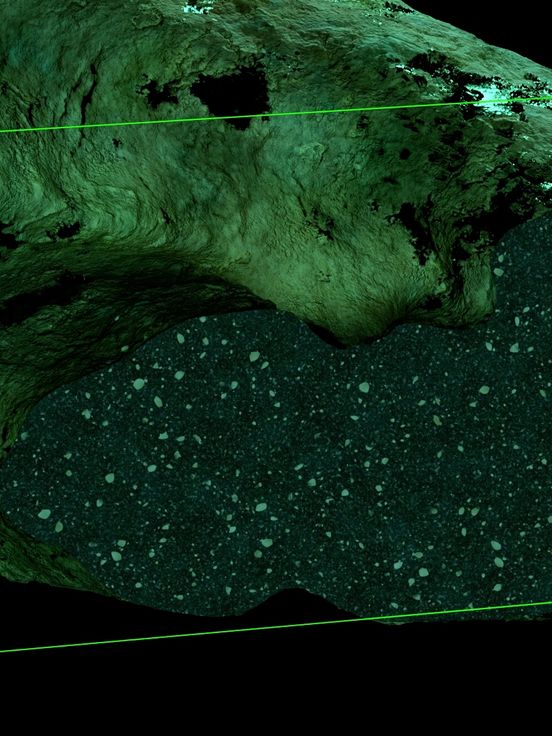Chan Sook Choi often bases her works on her artistic research, which addresses questions of land and ownership, the things people leave behind in areas once settled, and various forms of migration. She has, for example, explored in depth the so-called demilitarised zone between North and South Korea. Choi works in a variety of media, including performance, photography, installation and video. The Berlinische Galerie is showing her work “qbit to adam” (2021, 36 min.). Her title refers both to quantum bits as the smallest possible unit of storage for quantum information and to the Hebrew word “adamah”, meaning ground or soil. In this piece, Choi combines different perspectives on the correlations that exist between owning information and taking possession of land. To make this video Chan Sook Choi travelled to the Andes in Northern Chile, where she visited the world’s biggest copper mine Chuquicamata and the town of the same name, whose residents were “resettled” by the state-owned mining company. She links her observations of this site to thoughts about the collection and ownership of intangible goods, something performed 150 kilometres away at the Atacama Large Millimeter/submillimeter Array (ALMA). This gigantic observatory composed of radio telescopes is also an international research institute used by a number of countries. From here cold interstellar matter is monitored to better understand the origins of the stars and planets. Both places are symbolic of global claims and raise questions about ownership and property – of bodies, of land, but also of information, here on Earth and out in the universe.
